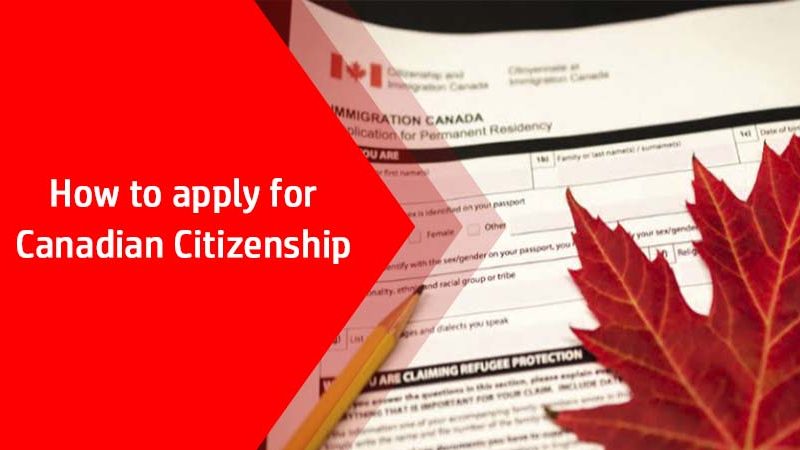Canadian Citizenship: A Comprehensive Guide to Eligibility, Benefits, and Application
Canadian citizenship is more than just a legal status—it symbolizes belonging, rights, and opportunities in one of the most welcoming and diverse countries globally. With one of the world’s strongest passports, Canadian citizens enjoy visa-free access to many countries, making citizenship a highly sought-after status for immigrants.
In addition to travel benefits, Canadian citizens gain access to a range of rights, including the ability to vote, receive social services and healthcare, and enjoy legal protection. Citizenship marks a significant milestone for immigrants, offering them a full role in shaping Canada’s future.
In this guide, we explore the pathways to Canadian citizenship, eligibility criteria, and the step-by-step process for applying.
Apply Also: In-Demand Jobs In British Columbia That Pay $40–$50 Per Hour
Pathways to Canadian Citizenship
There are several ways to become a Canadian citizen, including:
- Naturalization: The most common route for immigrants. Applicants must submit a formal application to Immigration, Refugees and Citizenship Canada (IRCC) and meet the eligibility criteria outlined below. Upon approval, applicants take the Oath of Citizenship during a ceremony, officially becoming Canadian citizens.
- Citizenship by Birth: Any individual born in Canada automatically gains citizenship, regardless of their parents’ nationality or immigration status, under the principle of jus soli (right of the soil).
- Citizenship by Descent: Individuals born outside Canada can claim citizenship if at least one parent was a Canadian citizen at the time of their birth. This citizenship by descent allows individuals to inherit citizenship from their parents.
- Adoption-Based Citizenship: Adopted children of Canadian citizens may also be eligible for citizenship if they meet the specific adoption and residency requirements.
Eligibility Criteria for Permanent Residents Seeking Canadian Citizenship
Applicants must meet several criteria to become eligible for Canadian citizenship. These requirements are governed by the Citizenship Act and its regulations. The main eligibility factors include:
- Permanent Resident Status: Applicants must have permanent resident (PR) status in Canada, which includes fulfilling any residency obligations attached to PR status.
- Residency Requirement: Applicants must have physically resided in Canada for at least 1,095 days (three years) within the five years preceding their application. This ensures a strong connection to the country.
- Language Proficiency: Applicants aged 18 to 54 must demonstrate proficiency in either English or French. Accepted tests include the Canadian English Language Proficiency Index Programme (CELPIP), International English Language Testing System (IELTS), or Test d’évaluation de français (TEF) for French speakers.
- Knowledge of Canada: Applicants must pass the Canadian Citizenship Test, which assesses knowledge of Canada’s history, political system, geography, values, and institutions. This test ensures that new citizens understand their rights and responsibilities.
- Income Tax Compliance: Applicants must have filed income taxes for at least three out of the five years preceding their application, showing compliance with Canadian tax laws.
- Intent to Reside: Successful applicants must declare their intent to live in Canada after receiving citizenship, confirming their commitment to becoming active members of Canadian society.
How to Apply for Canadian Citizenship
The application process for Canadian citizenship is structured, involving several steps:
- Gather Supporting Documents: Applicants need to compile all required documentation, including proof of identity, PR status, language proficiency, income tax assessments, and any other supporting materials.
- Complete the Application: Eligible applicants can apply online through the IRCC website by completing the necessary forms. The application is user-friendly and tailored to individual circumstances.
- Submit the Application: After gathering the required documents and completing the forms, applicants submit their application online along with the processing fee.
- Oath of Citizenship: Once approved, applicants are invited to attend a citizenship ceremony, where they take the Oath of Citizenship, pledging loyalty to Canada and committing to its laws and values. These ceremonies can now be conducted online as well.
- Receive the Canadian Citizenship Certificate: Upon completing the ceremony, successful applicants receive a Certificate of Canadian Citizenship, which serves as proof of their status and allows them to apply for a Canadian passport.
The First-Generation Rule and Citizenship by Descent
Under Canada’s first-generation rule, individuals born outside of Canada can acquire citizenship if one or both of their parents were Canadian citizens at the time of their birth. However, second-generation Canadians born abroad may need to apply through the courts to claim their citizenship status.
What is the Canadian citizenship first-generation rule?
The Canadian citizenship first-generation rule states that if you were born outside of Canada, you can acquire Canadian citizenship if one (or both) of your parents were Canadian citizens at the time of your birth.
Apply Also: Apply Now: In-Demand Skilled Trade Jobs In Ontario | New List
Can the child of the second generation of Canadian citizens born abroad claim their citizenship?
Yes, the child of second-generation Canadian citizens born abroad can claim Canadian citizenship via court.
Conclusion
Achieving Canadian citizenship is a milestone that opens up a world of opportunities. From enjoying full access to rights and privileges to contributing to Canada’s growth and development, citizenship allows individuals to fully integrate into Canadian society.
Understanding the pathways, eligibility criteria, and application process is key for anyone considering this important step toward building a future in Canada.






